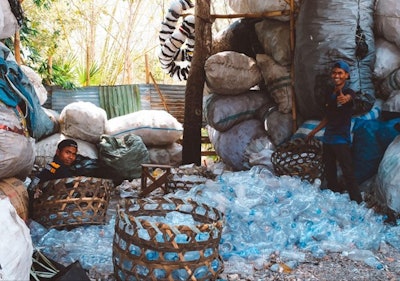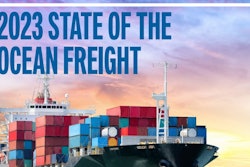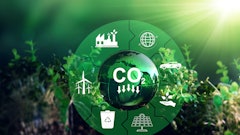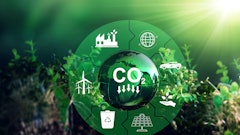
When it comes to the ways brands are getting involved in the fight against plastic pollution, consumers and regulators are demanding verified information around material origination and impact rather than vague claims. Today, more than ever, brands’ efforts to fight plastic pollution must be traceable and verified by reputable independent organizations. Authenticity is the foundation upon which brands can build consumer trust and loyalty. This transparency not only assists consumers in their purchasing decisions but also raises the value of reclaimed and recycled plastic, which is critical to achieve a circular plastic economy.
More than 350 million metric tons of plastic waste is generated globally each year. Current projections indicate that virgin plastic production is on track to increase dramatically -- and by 2060 the worldwide amount of plastic waste is expected to surpass more than 1 billion metric tons annually. The vast majority of plastic waste ends up burned, landfilled, exported to other countries where it may end-up in the environment, or otherwise discarded.
Turning off the tap on plastic pollution will require both market incentives for plastic reclamation and recycling as well as policy frameworks that increase the cost of new fossil-based plastics and the improper disposal of plastic waste. Rather than wait for regulations to force their hands, corporations have the power and responsibility now to lead the transition by reducing their reliance on virgin plastic and using recycled plastic in their products, packaging, and business operations to accelerate the circular economy.
Consumer data reveals that being proactive against plastic pollution is a win for brand reputation and sales. The majority of Millennials and Gen Z shoppers would rather buy goods and services from brands committed to social and environmental causes, even at a higher price point than less-sustainable choices. Another recent study, surveying American shoppers, revealed 91% of respondents consider plastic impact when making purchases, and almost half say the burden is on businesses and plastic producers to solve the world’s plastic pollution crisis.
But to avoid greenwashing backlash, brands claiming sustainable practices must validate their statements with hard evidence. Consumers have become very wary of vague sustainability claims and are adept at judging how well brand messaging matches real-world action. When customers perceive that a company is overstating its sustainability practices, brand reputation takes a hit and customer satisfaction in that brand’s products or services falls. To further protect consumers from being misled by brands’ claims, the U.S. Federal Trade Commission has recently announced the intention to strengthen the requirements in its Green Guides, making it more difficult for companies to make environmentally-friendly promises without generating measurable impacts.
Understandably, given all the scrutiny, brands are nervous. Afraid of being called out for greenwashing, it can be tempting for brands to avoid tackling plastic pollution altogether, or for brand marketers to “hush” their communications around sustainable efforts. This minimizes the brand value of sustainability campaigns. To avoid this inaction quagmire, brands must take steps to tackle plastic pollution today with transparency baked into every aspect of their plastic action plans.
Third-party certification of reclaimed or repurposed plastic materials ensures that recycled plastic or collected plastic waste integrated into a brand’s products, packaging, or business operations was sourced and processed in accordance with all applicable social, environmental, and quality standards.
Traceability is quickly becoming table stakes for brands to be sure their plastic action efforts are net positive for their organization. Tracking and tracing batches of recycled plastic throughout every step of the supply chain guarantees brands can clearly and confidently communicate their plastic pollution impact to their consumer audience.
Recently, blockchain technology has enabled brands to have even more confidence in the tracking and tracing of supply chain solutions. Each player in the value chain enters chain-of-custody data into the blockchain where it is immutable, creating a permanent record of materials transacted from shore-to-shelf. Through new visualization tools, plastic action partners can enable brands to quickly and easily see how much plastic has avoided the ocean and landfills as a result of their efforts. These data visualizations make it easy for brands to stay on track with their plastic reduction goals and to transparently communicate their progress. By arming consumers with detailed information about brands’ commitments to taking plastic action, shoppers and customers can confidently make purchasing decisions while understanding exactly how brands are addressing the plastic pollution problem.
As brands see a positive consumer response to their plastic waste reduction efforts–and environment-bound plastic is diverted back into the circular economy–this deep level of traceability reinforces the value of plastic action. When the value of taking action against plastic waste increases, more investment is put into developing new solutions and manufacturing strategies for creating a circular plastic economy to accelerate the removal of plastic pollution from the world’s ecosystems.

















